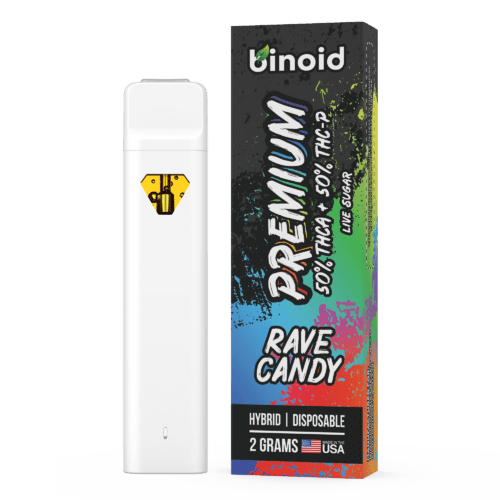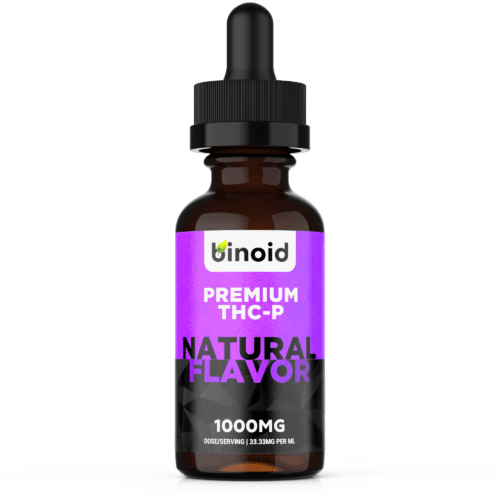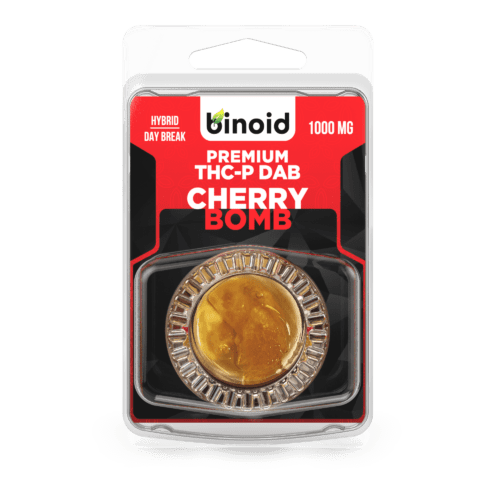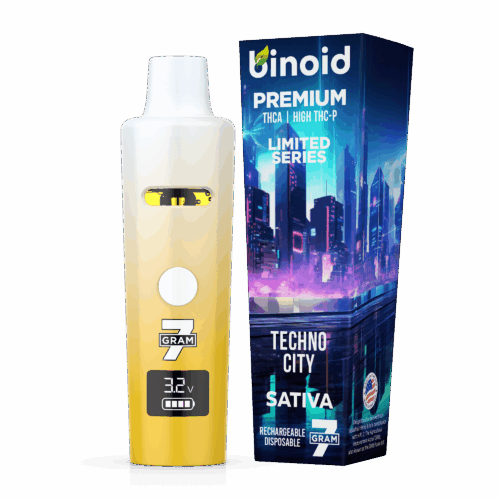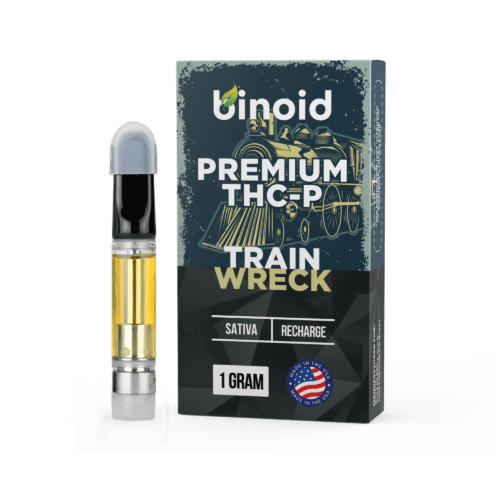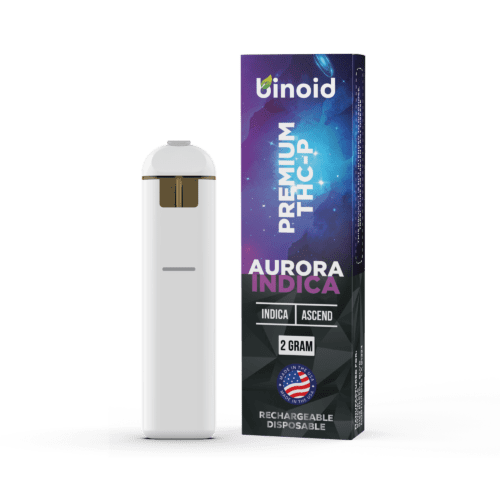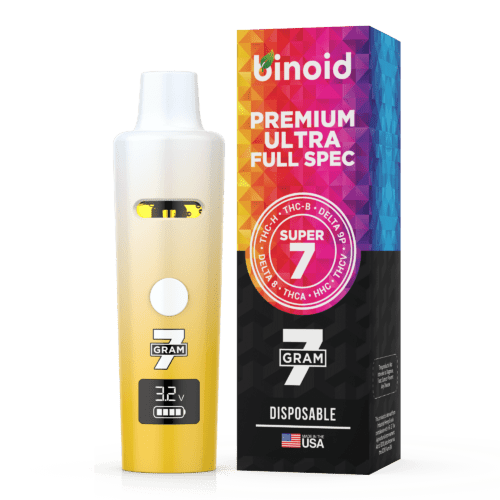THCP-O, aka tetrahydrocannabiphorol-O Acetate or THCP-O Acetate, is the new acetate form of tetrahydrocannabiphorol (THC-P), chemically modified to be more potent through the addition of an acetate. Besides the fact that its high promises to be more powerful and longer-lasting, most hemp enthusiasts know very little about it because it just emerged on the market.
One thing that might be on your mind as a cannabinoid enthusiast is whether or not this unique cannabinoid could cause a failed drug test result. Let’s take a look at what we know so far.
To Buy THCP-O Acetate Products Click Here
Recommended products
Will Taking THCP-O Cause a Failed Drug Test?
Ultimately, we can’t say for certain whether or not THCP-O Acetate will cause a failed drug test result since it hasn’t yet been put to the test. But, for all intents and purposes, the chance of failing is extremely high. THCP-O contains an acetate molecule which affects its chemical structure, but it’s almost certain that ultimately the cannabinoid metabolizes in the same way as delta 9 THC, being converted into the THC-COOH metabolite just like any other THC compound, and THC-COOH is what is responsible for a positive drug test result – more on that later.
The Different Types of Drug Tests That May Pick Up THCP-O Usage
There are, in fact, a number of drug tests used in the United States to find traces of drugs, so let’s go over each.
- Urine Tests: Urine tests make up 90% of all drug tests used in this country and are the standard for employers and probation environments. They look for use of drugs 2-60 days after the last dose, and thus, are extremely reliable and affordable.
- Saliva Tests: Saliva tests are usually used by law enforcement to determine if a person may be presently high, as they only show whether or not a person has consumed THC in the last 10 hours.
- Hair Tests: Hair strand tests identify drugs taken in the last 90 days, but are very unreliable and expensive, so they’re rarely used by employers, and are more commonly used to produce autopsy reports.
- Blood Tests: Blood tests show whether or not a person is presently high, and do not look for THC-COOH but rather THC, as THC has not converted into THC-COOH until it leaves the bloodstream. These are more commonly conducted in hospital settings.
- Perspiration Tests: Perspiration tests are mostly used for clinical trials, and involve attaching a patch to a person’s skin, where it remains for 2 weeks, collecting their sweat over the period of time.
Recommended products
What Will Influence the Likelihood of Failing a Drug Test
So, what if you’ve recently consumed a THCP-O product, only to find out that you’re getting drug-tested soon? There is still a chance that you’ll pass, as you’ll see below.
#1: Your Prior THCP-O Usage
Whenever it was that you last took THCP-O can make all the difference. If it’s been over 4 weeks, there’s a very good chance you’re going to pass. The other factor is how often you took it prior to stopping in preparation for your test. THC-COOH metabolizes at the same rate no matter how much of it is in the body, so if you’ve taken THCP-O product every day for a few weeks, there’s a lot of THC-COOH to work through the body before it’s gone, which means that you’ll likely test positive for longer – up to about 6 weeks. If you took only a small dose one time, say, 3 weeks ago, it’s very unlikely that you’ll test positive.
#2: How Your Body Metabolizes THCP-O
Because of things like genetics, diet, immune function and overall health, some people’s metabolisms fully break down and eliminate cannabinoids more quickly than others, and are more likely to pass a test within a short period of time.
#3: Strength of the THCP-O Product
If you’ve purchased a product that comes in different milligram strengths, like a THCP-O tincture or THCP-O gummies, the milligram strength you’ve been taking plays an important role. You’ll metabolize 5mg of THCP-O much faster than, say, 50mg.
Recommended products
How Drug-Testing For THC Works
When a person takes a standard urine test for an employer or other type of organization, the test is not actually seeking to identify levels of THC in the body. Instead, it’s searching for THC-COOH – a type of metabolite that’s released into the body when a person consumes THC, in order to break it down. THC-COOH is fat-soluble, which means that it remains in the body for quite a while. This is why a person can test positive for several days up to weeks following THC usage.
Because standard drug tests are testing for a metabolite rather than a specific compound, this raises the question about how tests will respond to other cannabinoids. In other words, are there other compounds in hemp that cause the body to produce THC-COOH besides delta 9 THC?
What Should You Know About PHC Before Getting Tested?
If you want to take your chances and use THCP-O products despite knowing that you may be drug-tested in the relatively near future, there are some things to keep in mind first. One is that in the event that THCP-O Acetate does, in fact, trigger a positive result, your usage can make a difference.
Comparing it to THC, we see that those who only use marijuana once in a while can require 5 or so days before they test “clean”, while heavy users may need somewhere around a month of abstinence before THC-COOH is no longer detectable in their urine.
In other words, if you’re worried that using THCP-O Acetate can cause a positive result, you might want to apply this information to your PHC usage. Basically, consider when it’s time to take a break from using THCP-O so that the potential levels of THC-COOH would no longer be traceable by the date of your test.
Also, there are cannabinoids that do likely trigger THC-COOH, and those are delta 8 THC, delta 10 THC, THC-O, and THC-P. Some hemp companies craft products that combine THCP-O Acetate with at least one of these cannabinoids, so taking them could cause you to fail a drug test, not because of the THCP-O itself.
When it Comes to Drug-Testing, Be Safe Instead of Sorry
Essentially, THCP-O Acetate has a high chance of causing a failed drug test result. So, as always, it’s better to be safe than sorry, and abstain from THCP-O completely if you know that you’re going to be tested within the next month or so. While it hasn’t yet been proven that taking THCP-O can cause a failed drug test, there’s no reason to believe that the cannabinoid bypasses THC-COOH during the metabolization process, and what this means is that like all other THC cannabinoids, it’s likely that it will show up on a drug test.

